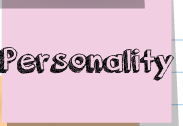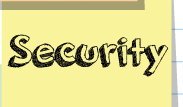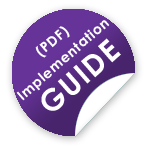The decision to craft a unique and identifiable voice for Susie, an online persona, raises questions about virtual identities and their influence on those who adopt them. What does it mean to ask tutors to work within an identity that is fictional? How does playing this role affect their online work and does it also influence their face-to-face interactions? In the response section of this webtext, we explore the tutors’ reactions to being asked to play Susie, and their comments indicate that they are aware of the implications of what they are doing. From Josh Cobb’s straightforward “I have no ethical problems with it,” to Jeff Derrickson’s wholehearted endorsement of a benevolent virtual identity, UHCL tutors indicate that they understand the effect that participating in online communication has had on our notion of identity.
In Life on the Screen: Identity in the Age of the Internet, Sherry Turkle (1995) investigated this issue as it is played out in online interactions, primarily in MUDs. She traced the changes in our view of identity as singular and “forged” to multiple and “Protean”:
What I am saying is that the many manifestations of multiplicity in our culture, including the adoption of online personae, are contributing to a general reconsideration of traditional, unitary notions of identity. (p. 260)
Turkle presented this change as mostly positive, and in line with postmodern views of the self as multiple and flexible. The internet simply provides a new and effective venue for exploration, though such exploration is not always positive for specific individuals because it is dependent on the tools and abilities each of us brings to the exploration. 1
Quoting psychoanalyst Erik Erikson, she explained this type of play as a “‘toy situation’ that allows us to ‘reveal and commit’ ourselves ‘in its unreality’” (p. 184). In other words, online participation allows us to try on new ways of being, to explore how we might add those characteristics to our selves.
When people adopt an online persona they cross a boundary into highly-charged territory. Some feel an uncomfortable sense of fragmentation, some a sense of relief. Some sense the possibilities for self-discovery, even self-transformation.
Susie, however, is not an exploratory persona. Hers has been crafted to display and promote characteristics we value in the Writing Center. When tutors adopt Susie’s persona and act in her “role” it may be more or less difficult for them, but regardless, they are playing out a role that they value as tutors. So, while becoming Susie may require flexibility, “being” Susie requires consistency. Susie is a tool, not for interpersonal exploration, but for the promotion of a set of values. She is what Turkle (1995) refers to as an “object-to-think-with” (p. 258); that is, Susie provides students with play space in which they can consider how they participate in online discussions, while also providing tutors with a model for exploring how they present themselves and their work in those same discussions.
Writing Center tutor Adria Weger described this effect powerfully: “thinking about how Susie would handle certain things also helps me in my regular online sessions to keep calm and positive when the session gets particularly frustrating.” Tutor Diana North, when asked if there was anything she couldn’t do as Susie that she might do as herself, reported “Well, I can slip into Mommy mode or turn into a lecturer [as myself], but that’s not something I should do as a tutor anyway.”
A recent study conducted by Stanford University and the National Science Foundation confirms that we may actually learn from taking on a virtual role: According to researcher Jeremy Bailenson, when your avatar resembles you, your real world behavior will change depending on how the avatar acts (as cited in O'Brien & Kellen, 2011): “How we shape our own avatars and how we interact with others could have profound influences on our behavior” (para. 14). If it is a given that avatars and online participation are here to stay, then we need to pay attention to how we construct our avatars and manage our communications. Susie represents one such approach.
For our discussion on the visual aspects of virtual identities, see our discussion of the principle of The Uncanny Valley.
1 In her more recent work, Alone Together, Turkle (2012) investigated some of the problems these same technologies can cause, particularly for digital natives. She focused on the trouble connecting virtual causes for real-life connections. We hope that Susie serves not as a substitute for real-life connection in our Center, but instead as a welcoming ambassador who will encourage writers to make that face-to-face appointment in the future.


























